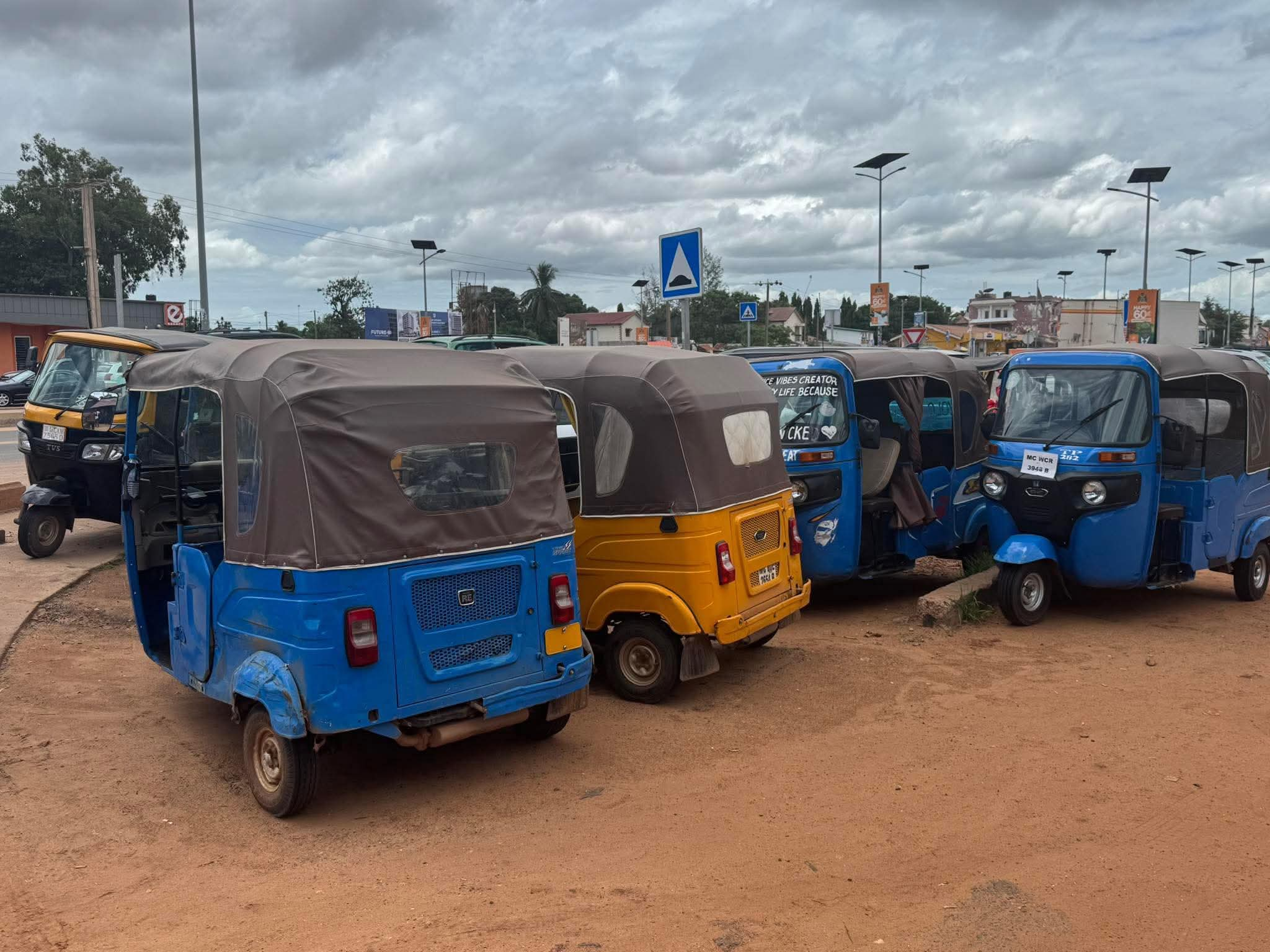Gambiaj.com – (Banjul, the Gambia)- On a hot Thursday afternoon in Serrekunda, the air smells of petrol and dust. Traffic clogs the road, a mix of taxis, vans, and the small open-sided cars locals call “Batch cars.” Behind the wheel of one, a wiry man in a faded Arsenal jersey leans out to call to a passenger. His name is Musa. For the past two years, he’s driven these streets from dawn to dusk. But the road is not his. “Only Sunday is mine,” he says. “Every other day belongs to my boss.”
A Daily Cut, Paid in Sweat
Musa’s arrangement is common among Sierra Leonean drivers in The Gambia. He doesn’t own the car; it belongs to a Gambian businessman. Six days a week, Musa must hand over D1, 000 before he can keep a single dalasi for himself. Fuel and maintenance? That’s on him. Not all Keke Drivers have this problem, but for him and many others, a challenge renewed when the engines and the fuel stations calls for it.
A breakdown means lost income and more debt. Even replacing a tire can swallow a week’s savings. By the time everything is paid, Musa’s profit is little more than survival money.
A Transport System Under Strain
In The Gambia, road transport is the country’s lifeline. With no railway and limited public bus services, the streets depend on small-scale private operators; taxis, vans, and batch cars, to keep people moving.
But the system is fragile. Fuel prices have climbed steadily over the last two years, mirroring global market hikes. In the informal transport sector, the cost lands squarely on drivers. Spare parts, imported and subject to exchange rate swings, have also grown more expensive.
Raising fares isn’t simple. Competition is fierce, and passengers resist paying more. Each extra dalasi at the pump chips away at a driver’s slim margin.
The Police Factor
Then there’s enforcement. Musa says police sometimes seize Batch cars for operating in restricted zones or during peak hours without permission. “If they take your car, you pay to get it back. Even losing a few hours means you can’t pay your boss that day,” Musa says. “That’s when the debt starts.”This is not the only reason for the seizures” he said, we are constantly told by Gambian police that foreigners aren’t allowed to drive commercial vehicles.”
Some drivers now avoid lucrative areas altogether, fearing seizure. Others take the risk and absorb the fines. From Freetown to Serrekunda
Sierra Leone’s youth unemployment remains stubbornly high, with many earning less than D500 a day in informal jobs. Word travels through friends and family that The Gambia offers better pay, and the ECOWAS free-movement agreement makes migration easier. But the reality is harsher than the promise.
Drivers like Musa and his colleague Ibrahim, 28, find themselves working long hours under the sun, with little left to send home. “My mother asks if I’m eating well,” Ibrahim says. “I tell her yes, but some nights I just drink Garri for dinner.”
The Invisible Workforce
Batch cars have become part of The Gambia’s urban landscape. Zipping between markets, hotels, and beaches. But behind the convenience is a workforce without contracts, benefits, or security.
No written agreements — everything is verbal.
No insurance — accidents and illness are personal risks.
No safety net — one bad week can wipe out a month’s earnings.
For Musa, the dream is simple: save enough to buy his own car.
“If I can buy my own car, then Sunday can be every day,” he says.
Until then, he drives, navigating not just traffic, but the daily toll of a system stacked against him.
By the Numbers: Ticket Driving in The Gambia
Average ticket fare (short trip): D10
Cost spent on Patrol Daily: ~D500-700
Boss’s daily cut: D1,000–D1,200
Typical police fine for seizure: D100-200
Average driver working hours: 10–14 hours/day
Days off: 1 (Sunday)











One Response
Then, in the interests of an economy with no rail transport and more so in the interests of Passenger Safety, the assurance that the Vehicles are maintained if roadworthy condition, proper wages for TRAINED drivers in Driving Defensively etc etc. Perhaps, the answer is to Nationalise these Vehicles. The Government can provide Fuel at economical Bulk Purchased prices, The Fleet of Keke’s can be Maintained by ONE National Service Team in different locations. The Service will continue efficiently without the need for Vehicles being pulled in by the Police wasting their valuable time. The Drivers will get a standard weekly wage. The General Public will get a Safer Journey at the standard Prices. LIVES will be SAVED. The need for SPEED to make a living for the Driver will be eliminated. The Quality of Maintenance will be improved without Mechanics cutting Corners. The ONLY ones to suffer with be the current Business Men who rake off the Profits from the current system and who have been responsible for the likely accidents Deaths and Injuries. FOOD for THOUGHT Gambia and Sierra Leon and the Regions. Perhaps similar with the other Transport Vehicles, Buses and Taxis. The Costs for Road Recovery/Medical Emergency/Police/ Hospital, plus the Social Trauma Costs for Road Accidents Deaths and Injuries is circa 2%GDP ANNUALLY in all countries. THAT would be reduced dramatically. The savings alone would cover much of the cost of such reorganisation and operations Annually. START Thinking outside the BOX!